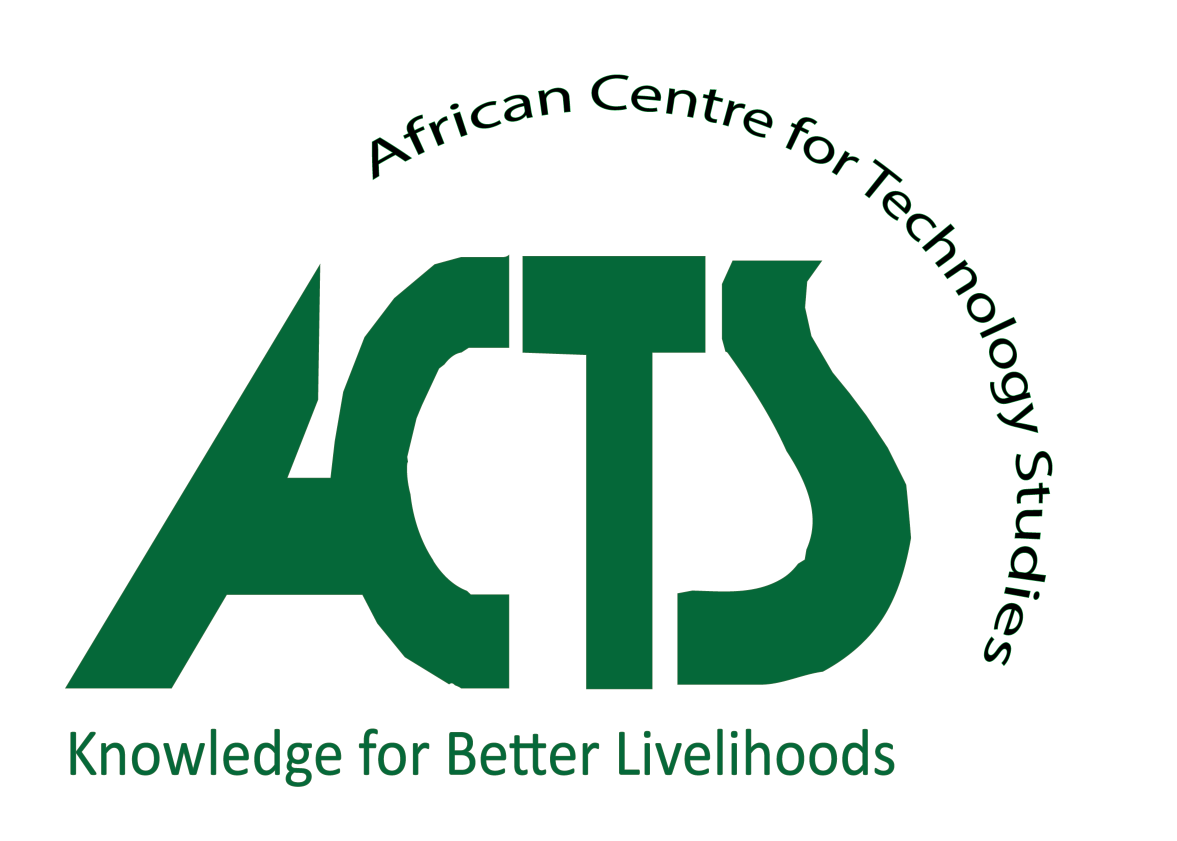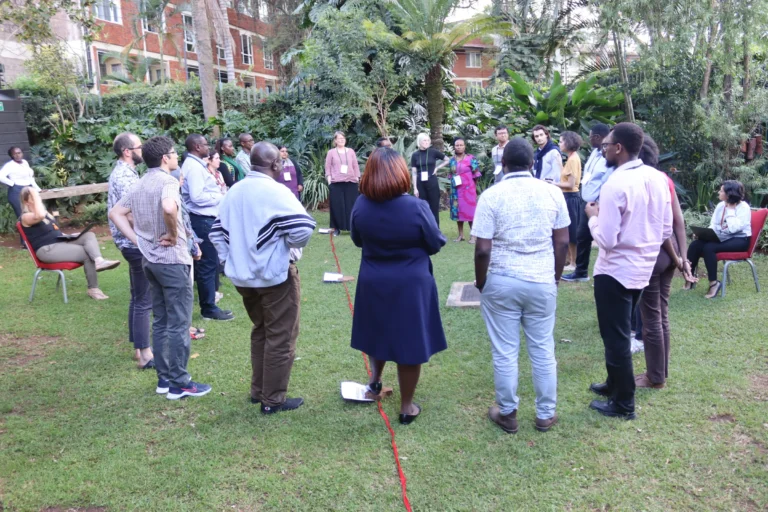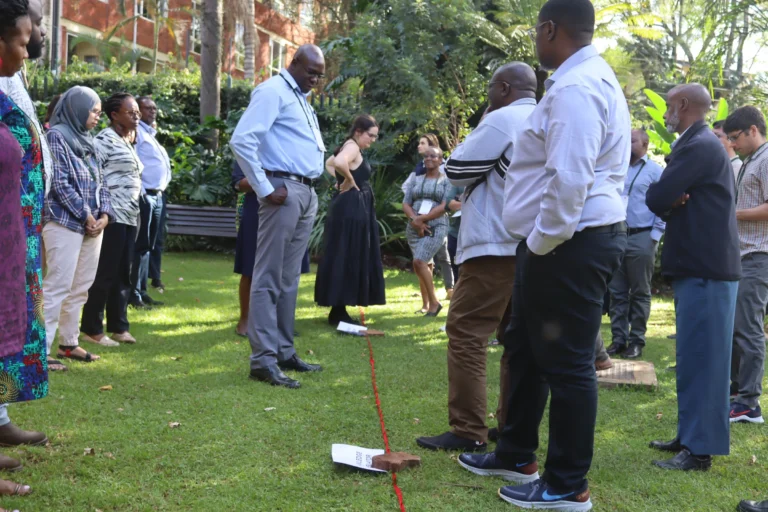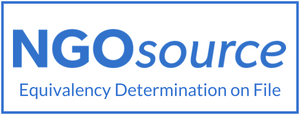By Joel Onyango, Maureen Kabasa, Miali Mohamed, Salome Okoth
The 29th Conference of the Parties (COP 29) in Baku, Azerbaijan provided an invaluable platform for experts, policymakers, and innovators from around the world to convene and facilitate meaningful discussions on tackling climate change. As a panelist, I had the honor to present insights and initiatives from the African Centre for Technology Studies (ACTS) at the Climate Technology Centre and Network (CTCN) conversation panel at the Greece Pavilion. This blog sheds light on the importance of strengthening national systems of innovation for collaborative Research, Development, and Deployment (RD&D) on climate technology to support the achievement of the Paris Agreement on climate change.
The Paris Agreement, adopted in 2015, aims to strengthen the global response to climate change by limiting global warming to well below 2 degrees Celsius and pursuing efforts to limit the temperature increase to 1.5 degrees Celsius. Achieving these ambitious goals requires transformative and innovative approaches that are deeply rooted in national systems of innovation. Often, transformative and innovative approaches are perceived as purely technological, but financial and institutional innovations also play a crucial role in achieving the goals of the Paris Agreement. These systems play a pivotal role in driving the development and deployment of cutting-edge climate technologies that can significantly contribute to mitigating the impacts of climate change.
Collaborative RD&D for Climate Technology and the National Systems of Innovation
Collaborative RD&D on climate technology involves a multidisciplinary approach that brings together researchers, innovators, policymakers, and practitioners to jointly address the challenges of climate change. By fostering collaboration at national, regional, and global levels, countries can pool resources, share knowledge, and accelerate the development and deployment of impactful climate technologies. Furthermore, collaborative RD&D activities can amplify the collective impact of diverse stakeholders and create synergies that drive sustainable solutions. To effectively support the achievement of the Paris Agreement, it is imperative to strengthen national systems of innovation. This involves bolstering the capacity of research institutions, fostering innovation ecosystems, and providing conducive policy frameworks that incentivize investment in climate technology RD&D. Additionally, empowering local communities and ensuring gender and youth inclusion in innovation processes are integral components of fostering robust national systems of innovation for climate technology with the though of impact from the onset in RD&D.
Positioning ACTS to enable climate technologies and innovations
The African Centre for Technology Studies (ACTS) is a research, policy, and technology-oriented organization committed to strengthening the capacity of African countries and institutions to harness science, technology, and innovation for sustainable and inclusive development. Located within the vibrant ecosystem of Konza Technopolis, ACTS is dedicated to conducting research, providing advisory services, and disseminating information on the policy aspects of applying science and technology to sustainable development in Africa.
African Centre for Technology Studies (ACTS) has five programming areas including, Agriculture, Food and Nutrition Security, Science, Technology, Innovation and Knowledge for Society, Digital Economy, Gender Youth and Inclusive Development, and Climate Resilient Economies.
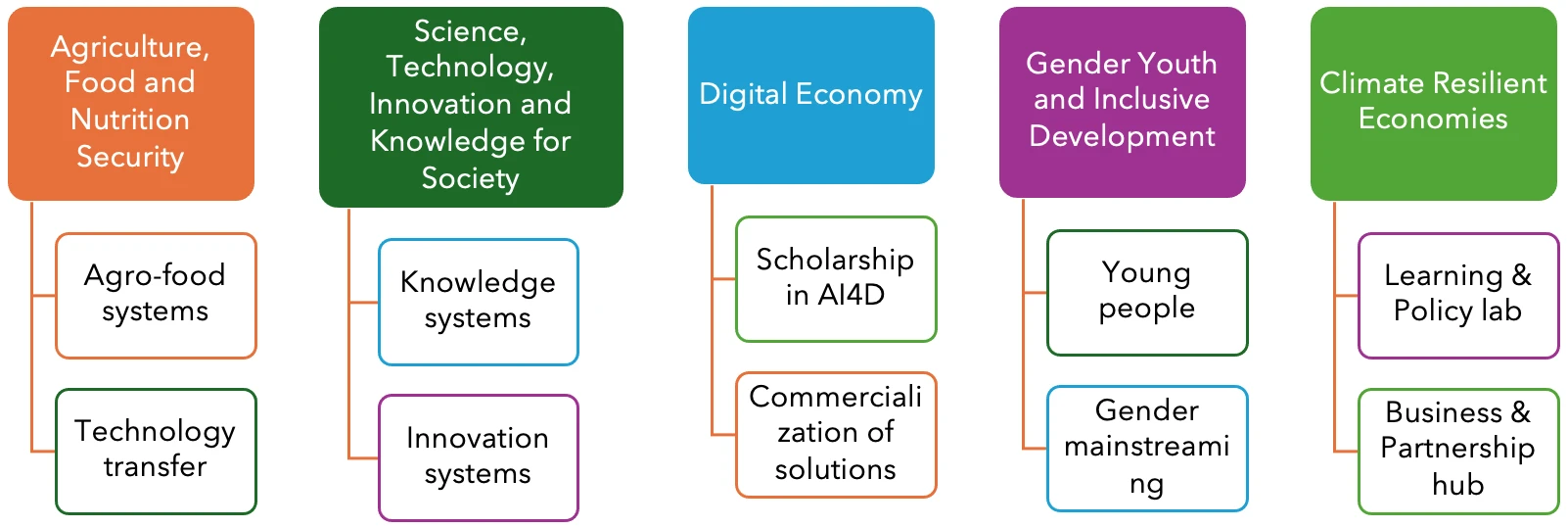
The implementation in these thematic areas, has ACTS focusing on five areas of intervention comprising policy relevant research, outreach and engagement, knowledge and technology brokerage, and capability building. The focus has ensured that the impact checklist—covering impact, context specificity, relevance of actors, understanding institutional context, and the power of interrelations—is met through its operations guided by innovation.

ACTS work in promoting RD&D for national innovation systems
Some of the key areas for ACTS in RD&D can be packaged in three of the five intervention areas including knowledge and technology brokerage, and capacity building.
Knowledge Brokerage: ACTS plays a crucial role in knowledge brokerage, especially through its engagement with the African Network for Economics of Learning, Innovation, and Competence Building Systems (AfricaLics). Through this network, ACTS facilitates the exchange of knowledge, experiences, and best practices in the areas of learning, innovation, and competence building systems across Africa. Additionally, ACTS is involved in Research and Innovation Management (RIM) projects, where it oversees the effective management of research and innovation initiatives to drive impactful outcomes.
Technology Brokerage: In the realm of technology brokerage, ACTS focuses on various projects aimed at harnessing technology for empowerment and sustainability. The Blue Empowerment project seeks to leverage technology to empower communities and enhance their livelihoods. The solar cooling and drying ACES project involves developing innovative solutions for sustainable cooling and drying using solar energy. The ACTS Konza Artificial Intelligence Institute (AKAII) and the ACTS Technology Centre, including gDIH (Digital Innovation Hub) and the community cooling hub project, are initiatives aimed at harnessing technology for positive societal impact and sustainable development.
Capacity Building: ACTS prioritizes capacity building through various initiatives focused on skill development and knowledge enhancement. The ACTS Pathways Academy offers training programs and courses to build capacities in areas related to sustainable development, innovation, and technology. The AfricaLics academy provides specialized training and capacity-building activities in the field of economics of learning, innovation, and competence building systems. The AI4D scholarship program aims to nurture talent in Artificial Intelligence for Development, offering scholarships to individuals with a passion for leveraging AI for positive societal change.
Lessons drawn from the work ACTS has done
The work ACTS does in RD&D is transitioning ACTS to a think-do-tank, beyond the think-tank position that the organization has been focused on. These lessons can be enhanced to support the achievement of the Paris Agreement objectives.

Level of localization/decolonization of actions determines sustainability: The extent to which RD&D initiatives are localized and decolonized significantly impacts their sustainability. By incorporating local contexts, knowledge, and traditions into projects, organizations ACTS continues to ensure that interventions are relevant, accepted, and sustainable in the long term.
The global production network influences commercialization: The global production network plays a crucial role in the commercialization of innovations developed through RD&D activities. Understanding and strategically leveraging global networks can facilitate the successful commercialization of solutions, enabling them to reach larger markets and have a wider impact.
The business models anchor success: Strong and sustainable business models are essential for the success of RD&D initiatives. By developing robust and adaptable business models, ACTS continues to promote scalability and longevity of climate action projects, attracting investment, and fostering growth.
There is a need to diversify partnerships that are authentic for global discourses: Building diverse and authentic partnerships is essential for engaging in global discourses and initiatives. Building collaborations with a wide range of stakeholders, including governments, businesses, academia, and local communities, ACTS brings different perspectives and expertise to the table, enriching discussions and driving impactful outcomes.
Impact communication is strategic to build agency: Strategic communication of impacts is critical for building agency and influence. Ensuring effectively communicating the outcomes and successes of RD&D initiatives, organizations can raise awareness, inspire action, and build credibility, ultimately empowering stakeholders and driving change on a larger scale.
Conclusion
The journey towards a sustainable and resilient future requires collective action, innovative solutions, and robust partnerships. By strengthening national systems of innovation, fostering collaborations, and amplifying the impact of climate technologies, we can work towards achieving the ambitious goals of the Paris Agreement. Let us unite in our commitment to drive transformative change, empower communities, and pave the way for a greener and more sustainable world. Together, we can make a difference and leave a positive legacy for future generations. Join us on this journey towards a brighter and more sustainable future.
